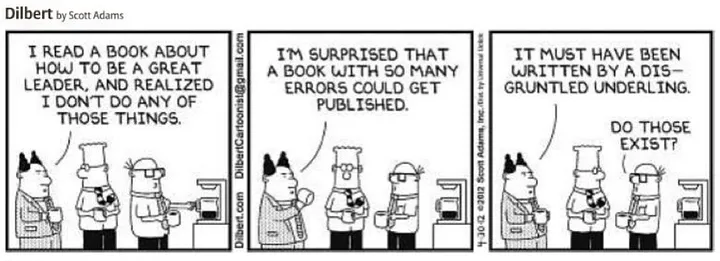
It isn’t possible to hire yourself to an effective team, despite the many, many attempts made by managers to do so. Effective teams are built over time and require a clear vision and focus from management at all levels.
Effective teams start with the manager.
- It simply is not possible to build a highly effective team with management who is disconnected from the staff. A manager must be connected deeply (at whichever level is being managed) to the team to implement the following steps to building a highly effective team.
Have a Clear Plan
- If you have No Plan, you have No Chance!
- Communicate that Plan, both to higher management and to the full team. There may be some details more relevant to certain levels, but trust that more information is better than less. Need to Know only exists in the military – and it kills team effectiveness.
- Evaluate Team Development and Achievements Against the Plan – and communicate it. Which goals were met, and which were missed and be honest with why for each. If you aren’t honest with why, it isn’t possible to generate real solutions
Establish a Team Culture:
- A Shared Vision and Goal, which starts with the manager and clearly communicated to the team and believed in by the team
- Mutual Respect and Support, which is only possible in an environment where people are treated equally, paid fairly, and the team come together regularly. It is also essential the managers treat all staff the same, regardless of the management style used.
- Open Communication, both from management and within the team. This means sharing the good and the bad with the team, being honest and trusting the team to have the interests of the organisation in hand. It also means sharing team successes and failures together. Don’t sugar coat, don’t dissemble, be open.
- Individual Accountability and Collective Responsibility, which is to say that each member of the team understands their role in the team’s success and failure. And then holding each person accountable to each other publicly with each failure and success.
- Inclusivity, which shouldn’t need to be said, but it is not possible to have a team culture when members are excluded, for any reason other than purely performance based (in which case that exclusion is separation from the organisation). The same can be said for special treatment to favoured staff.
- Continuous Learning, both in department processes and individual skills. Staff only grow as a team when that team has a focus on continuous development.
Set High Standards.
- Which most importantly Apply to Management as much as the Team Members.
- Excellence in Everything You Do, which should always be the focus and constantly trained. Teams need to reflect on mistakes and learn together how to avoid them in future.
- Attention to Detail, which is part of the reason a technical team needs a technical manager. Every aspect of technical support should be evaluated and addressed from technical skills to customer communication, to procedure compliance, to visit planning, stock control, why they chose this part and not another, and on and on… No detail is too small!
- Discipline, which extends the points above in that staff and management both need to have discipline in the way the work, but management must also address non-compliance of team members who do not meet the standards of improvement.
Build Mental Toughness
- Through Challenging Tasks and Training, which means a manager must always be evaluating the current level of the team member and/or team as a whole and push them just hard enough to achieve what they thought was not possible, but not break them in the process.
- Positivity, which is to say not platitudes or pretend positivity, but a genuine positivity through a clearly communicated plan, timelines of milestones and genuine belief within the team in their ability to achieve those goals even in the most difficult moments
- Handling Adversity, those difficult moments happen in all organisations and to all individuals and it is essential that when they happen they are handled by the entire team including management in a way that demonstrates how to overcome those challenges and how to learn from them
Build Depth and Flexibility.
- Expertise, every team member, including the manager, must know their role inside and out and how that role contributes to the overall success of the team.
- Versatility and Adaptability, such that every team member knows the roles of other team members enough to have a deeper appreciation of the challenges, stakeholder impacts, and skills required. Even better if they can do each others jobs to give team flexibility.
Develop Leaders.
- Identify Potential Leaders Early, so that they can be given attention to develop those leadership skills. Those potential leaders may be some of your most vocal employees, but they may also be those that lead by doing.
- Train Leaders don’t just Promote. Train by actual instruction sessions, but also by giving greater responsibility and then challenging them directly on their success or failure separately from the team.
- While not all team members will be Leadership Potential, all team members need to Understand the Accountability, Compromise, and Responsibility of Leadership so should be given tasks to demonstrate that for themselves in real terms.
- Communicate, Communicate, Communicate. If the team knows why you make your decisions, they can better understand and trust decisions they don’t have a full picture of. They also learn to make better decisions for themselves in their day to day tasks.
Support Work/Life Balance.
- Each Team Member is a Real Person. They aren’t just cogs in a machine easily replaced, and they aren’t assets a company can use as they please. A team does not exist without team members, and these team members need a life they can live and a job they can love.
- Pay Fairly, so that staff can focus on their work without worrying about supporting their life outside of work (assuming they live within their means!)
- Give People Time Off, not just approved leave, but after particularly intense periods or achieving a big success, let people recover with a day off, or later start, or an early finish, or a long weekend that doesn’t come from their leave record. If there is a down period, use it to develop the team or as a recovery period.
- Know the Team and Support Each Other, everyone should be able to identify when someone is pushing too hard or is not coping and be able to raise that together as a team. Importantly a manager should know their team and intervene before that moment (despite this being one of the most difficult tasks in high performance management)
Creativity and Innovation.
- Simplicity is Better than Complexity. A manager should not look to fix a problem in a team by adding layers of complexity. Rather, look for ways to simplify the issue, often with team input to that solution.
- Stay Relevant. There is no point being innovative in areas have no impact on your stated Plan and Goals. Stay focussed but be open to ideas and new ways to doing things.
- Don’t be Afraid to Experiment. Not every solution works every time. Ensure the team understands what the plan is, why it does what it does, and what every persons role is in making it happen. And when it fails, evaluate why as a team and adjust as needed. Rinse and repeat!
Continuous Improvement.
- Track Performance and Improve Continuously. Whether this is through regular team sessions, or individual feedback on single tasks, or management reviews on success and failure.
- Improvement Only Happens After Honest Evaluation. If something is wrong, address it head on, without hesitation, and set a clear path to improvement. Then support that path, don’t just leave them to sink or swim.
- Set Goals for the Team and Individuals that are Challenging. Achieving the previously thought impossible builds a confidence in the team and each other that is a core element of effective teams.
- Identify Limitations to Progress. If people don’t grow, they either can’t meet the standards of the team (which is not a criticism, it just isn’t the place for them), or they aren’t being managed effectively – which is far more often the case!
Perfection is the Ultimate Objective
- It is achievable, even if it’s only fleeting! But when it happens it is like a drug for the team that they will chase until they no longer can.
- Don’t Reward Underperformance. Either someone is meeting a standard or they aren’t. Reward genuine team success against those high standards, not individual contributions.
- Avoid Gate Keepers, these are those team members who do one thing well, or have an outsized influence on the team (but are not managers or leaders) and wont let anyone else do whatever their thing is better – or at all! Gate keepers are poisonous to building an effective team and should be addressed with urgency.
Building high performing teams is not as simple as ticking some boxes or taking short cuts to the above steps. Newsletters and Town-Halls may help bring distant management closer to ground level employees, but they do nothing for building effective teams. The above steps are difficult to do and require a manager who will dedicate themselves to making it happen – even when staff struggle against their own growth and self-belief, when higher management want results that simply aren’t achievable at this stage in development, and when some long serving team members simply aren’t meeting the standards of the team despite being wonderful people and must be moved on if the team is going to grow.
But it is all worth it.
High performing teams are happier, have lower turnover, are more effective, and take deep pride in their work and their organisation. You will often hear from members of high performing teams that it feels like a family, that no one feels they are individually responsible for its success, but often feel they are individually responsible for failures or poor performance of the team.

If you need help building a high performing technical team, contact Creekline Consulting
